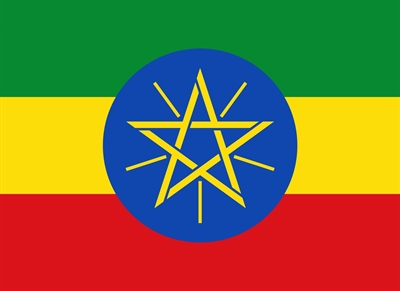Ethiopia - Convention on the Rights of Persons with Disabilities - July 2016
Country: Ethiopia
Type: Intl Mechanism Submission
Issues: Bias and Discrimination, Children's Rights, Diaspora Engagement, Education, International Advocacy, Minority Rights, Workers' Rights
Mechanism: UN Committee on the Rights of Persons with Disabilities
The Advocates for Human Rights submitted a report to the Committee on the Rights of Persons with Disabilities providing information on Ethiopia's compliance with the Convention on the Rights of Persons with Disabilities, including information gathered from the Ethiopian diaspora. This report was prepared for the Committee's 60th session which took place in August and September 2016.
Discrimination against and mistreatment of persons with disabilities is severe and pervasive in Ethiopia. Disabled children are especially vulnerable to abuse; they are often abandoned by one or both parents and, in more remote areas of the country, sometimes killed. Children with disabilities suffer from exploitation and sexual abuse at much higher rates than do their peers. Even when children report abuse, their parents, teachers, and health workers often choose to not take legal action against the abuser. Beyond physical harm, children with disabilities are often denied their right to an education in part due to the belief that they are unable to learn. The government does little to provide for students with disabilities, and teachers are often unwilling and untrained to accommodate the students.
The abuse and discrimination experienced by disabled children follows them into adulthood. People with disabilities have difficulty finding work as they are not protected under Ethiopia's Labor Proclamation. The legislation does not require employers to provide reasonable accommodation for disabled employees and allows employers to use a disability as grounds for termination. Some people with disabilities also have difficulty accessing health care as little is done to communicate services and resources to people with sensory disabilities. In the absence of a strong support system, it is often difficult for them to communicate their concerns to their doctors and to have their feelings be understood. In addition, political affiliation can determine whether a person has access to health care and other resources, such as food assistance.
The Ethiopian government also restricts civil society through the Charities and Societies Proclamation (CSP) which limits the amount of funding an organization can receive from foreign sources. The CSP restricts organizations working with people with disabilities, such as the Ethiopian National Association of the Deaf and the Ethiopian National Association of the Physically Handicapped.
The Advocates' report recommends that Ethiopia repeal the CSP and partner with civil society to promote the rights of people with disabilities, especially children. To this end, the report also recommends the Ethiopian government design and fully fund a strategy to prevent the exploitation and abuse of children with disabilities. The government must also make health care and education accessible to all people with disabilities, including providing training for teachers and ensure political affiliation does not affect access to state resources. In addition, the state must mandate employers to provide reasonable accommodations for employees with disabilities, and the government must make an effort to better integrate people with disabilities into the workforce. A course of action could include financial incentives for companies and provision of professional trainings and support to people with disabilities.
The Committee addressed many of the issues raised in The Advocates' report during its 60th session. Specifically, the committee expressed concern about the lack of legislation protecting children with disabilities and urged Ethiopia to implement legislation addressing this issue. The Committee also recommends that the State enact a plan to ensure equal access to education and health care and provide regular trainings for teachers and health care providers on the rights of people with disabilities. In addition, to people with disabilities.




